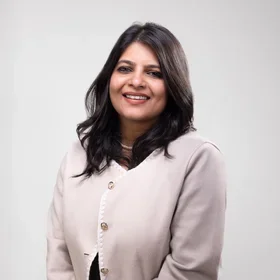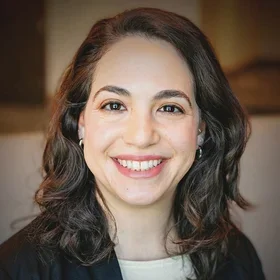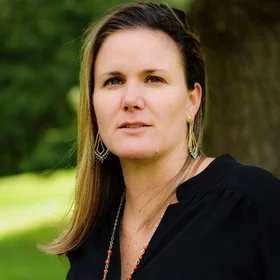Advait Vij and Tyler Schechter arrived separately at the orientation program for the Columbia School of Professional Studies, each scanning the crowd for name badges identifying fellow incoming master’s candidates in the Technology Management program. They spotted each other, introduced themselves, and quickly found they shared a number of interests.
Scarcely a year later, Vij and Schechter are now co-founders in QRius Pay, a new venture aimed at helping nonprofit and charitable organizations engage digitally with donors and supporters in the midst of the ongoing pandemic. And the recent graduates are quick to credit Columbia and the Technology Management program with more than the chance to meet.
“Columbia is a great place to be surrounded by like-minded folks, make those connections, and leverage those resources that can bring an idea into reality,” says Vij. “Where the program really added value was in enabling us to take an immature idea and make it tangible and real.”
Columbia is a great place to be surrounded by like-minded folks, make those connections, and leverage those resources that can bring an idea into reality.
Advait Vij, '20SPS Technology Management; Co-Founder, QRius Pay
As the name suggests, QRius Pay is a QR code-based payment solution that offers nonprofits and charities a new digital channel to reach people. Once derided as a passé novelty with marginal utility, QR codes are enjoying a resurgence as a seamless way to turn offline encounters into online engagement. QRius Pay enables organizations to deploy contextually located codes that people can scan to make a donation or learn more about a campaign, whether it’s on-site—say, at an exhibition, on the table at a fundraiser, or on the back of a marathoner (when such in-person events resume)—or on-screen, such as during a TV broadcast or online event.
“It’s really about capturing the donor in the moment and changing the way nonprofits and donors interact with each other,” says Vij.
The co-founders (including a third partner based in Canada) have already launched the platform in live beta. They have decided to not include a signup and or any monthly fee in hopes of boosting adoption and showing nonprofits of all sizes how they can use the platform to create “customizable micro campaigns” that can unlock new revenue streams.
“Our hope is to help as many nonprofits and charities as we can and help them rethink the ways they can connect with donors,” says Schechter. “By giving them the ability to create more digital touchpoints, we’re also enabling them to get data and analytics in a manner they could never have done before. The analytics are tremendous because you know who has scanned the code, where, what time.”
The team’s interest in a QR code solution grew out of recent travel experiences in India and China, where Vij and his Canadian cofounder were surprised to find that scan-to-pay options were ubiquitous in markets, restaurants, and retail stores. Vij and Schechter chose to focus their second-term capstone projects on unrelated QR code-based ideas, which gave them the opportunity to engage in valuable market research and design thinking. But the idea really began to crystallize during the lockdown in early days of the pandemic.
“The program really teaches you to look at an industry, identify a problem, and constantly challenge the status quo of the way things are done,” says Vij. “When I was locked up in an apartment and tensions were running high, I think the program encouraged us to think about how we could make a difference when times are more trying than ever.”
“Right now,” adds Schechter, “it’s an opportunity to bring something unique to the marketplace but also to help out our communities.”
Columbia opened me up to exploring new career paths and inspired me to think of how I could use technology to create a company from scratch.
Tyler Schechter, '20SPS Technology Management; Co-Founder, QRius Pay
As they look to onboard more clients across the U.S. and Canada, Vij and Schechter have continued to draw on the resources and relationships they gained from the program and across Columbia.
“A lot of people coming to SPS don’t realize the resources that are at Columbia above and beyond SPS,” says Vij, referring to an engineering course he was able to audit that was taught by a pioneering machine learning scholar. “Columbia is like a universe of knowledge. It gives us all of these great resources and it’s up to us to utilize them.”
“Columbia opened me up to exploring new career paths and inspired me to think of how I could use technology to create a company from scratch,” Schechter says. “When I was working in the corporate world, I didn’t really have the urge to be an entrepreneur and start my own company. But having done the Columbia program, I understand the opportunity we have before us—and I have the confidence and skills to give it my best try. Personally, I don’t think I would have done this if I hadn’t gone to Columbia.”
Learn more about the M.S. in Technology Management program.


